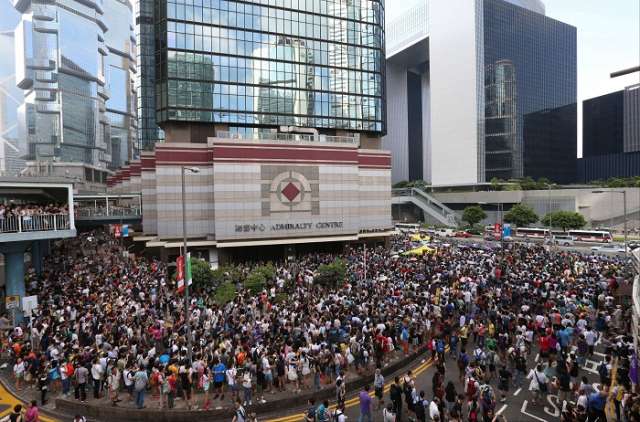Metal barriers were stockpiled in key locations, including government headquarters and near the office of Hong Kong leader Leung Chun-ying, although activists said they had no plan to re-occupy streets in the financial center.
"I think our goal in the whole movement starting from Occupy Central is to awaken the general public of Hong Kong to the importance of democracy," said Benny Tai, one of the co-founders of the so-called Occupy protests.
"I think that has been achieved much more than expected."
Crowds gathered in sweltering heat, with many carrying yellow umbrellas - a symbol of the democracy fight - and some with placards of Hong Kong leader Leung depicting him as the devil.
A handful of tents were erected in the area, where the mood was peaceful and resembled more of a holiday fair.
Last year`s 79-day protests failed to persuade China to allow a fully democratic vote for the city`s next leader in 2017, instead of from a list of pre-screened, pro-Beijing candidates, but many say the demonstrations triggered a political awakening.
Leaders of the Occupy protests are expected to appear at various rallies, including a moment of silence just before 1000 GMT (6 a.m. EDT) to mark the time when police fired volleys of tear gas to disperse demonstrators.
Dubbed the Umbrella Movement for the umbrellas protesters used to defend against tear gas, the unrest was the worst since China took back control of Hong Kong from Britain in 1997.
Amnesty International called on Monday for the release of eight mainland Chinese activists who face long prison sentences for posting messages and pictures supporting the pro-democracy protests. China urged it not to interfere.
The anniversary comes as recent comments from Beijing`s top representative in Hong Kong have reignited fears about China`s expanding influence.
The mainland official, Zhang Xiaoming, said this month Hong Kong`s chief executive had a "special legal position" above the executive, legislative and judicial institutions, suggesting Leung was above the law.
The former British colony returned to Chinese rule under a "one country, two systems" framework that gave it separate laws and an independent judiciary but reserved ultimate authority for Beijing.
More about:
















































